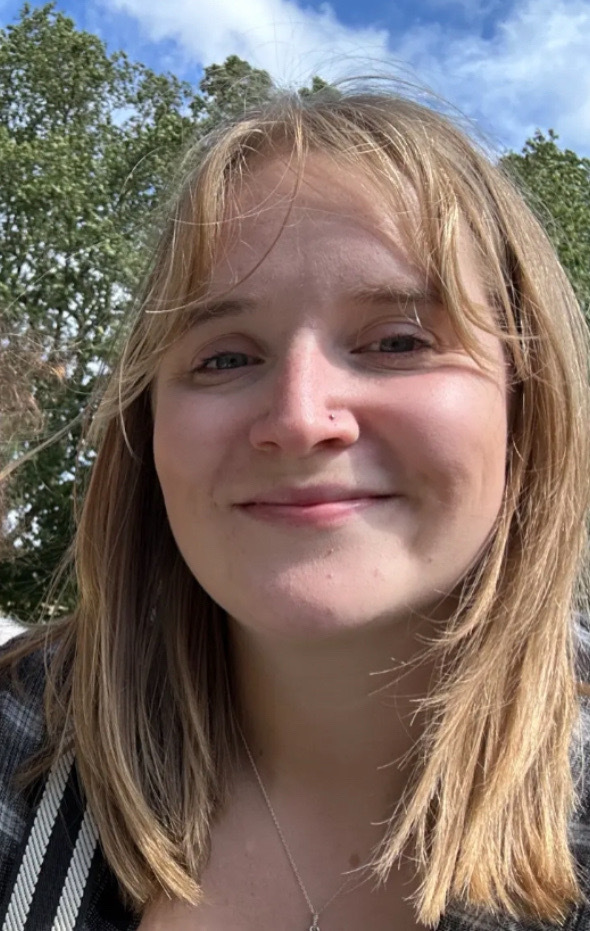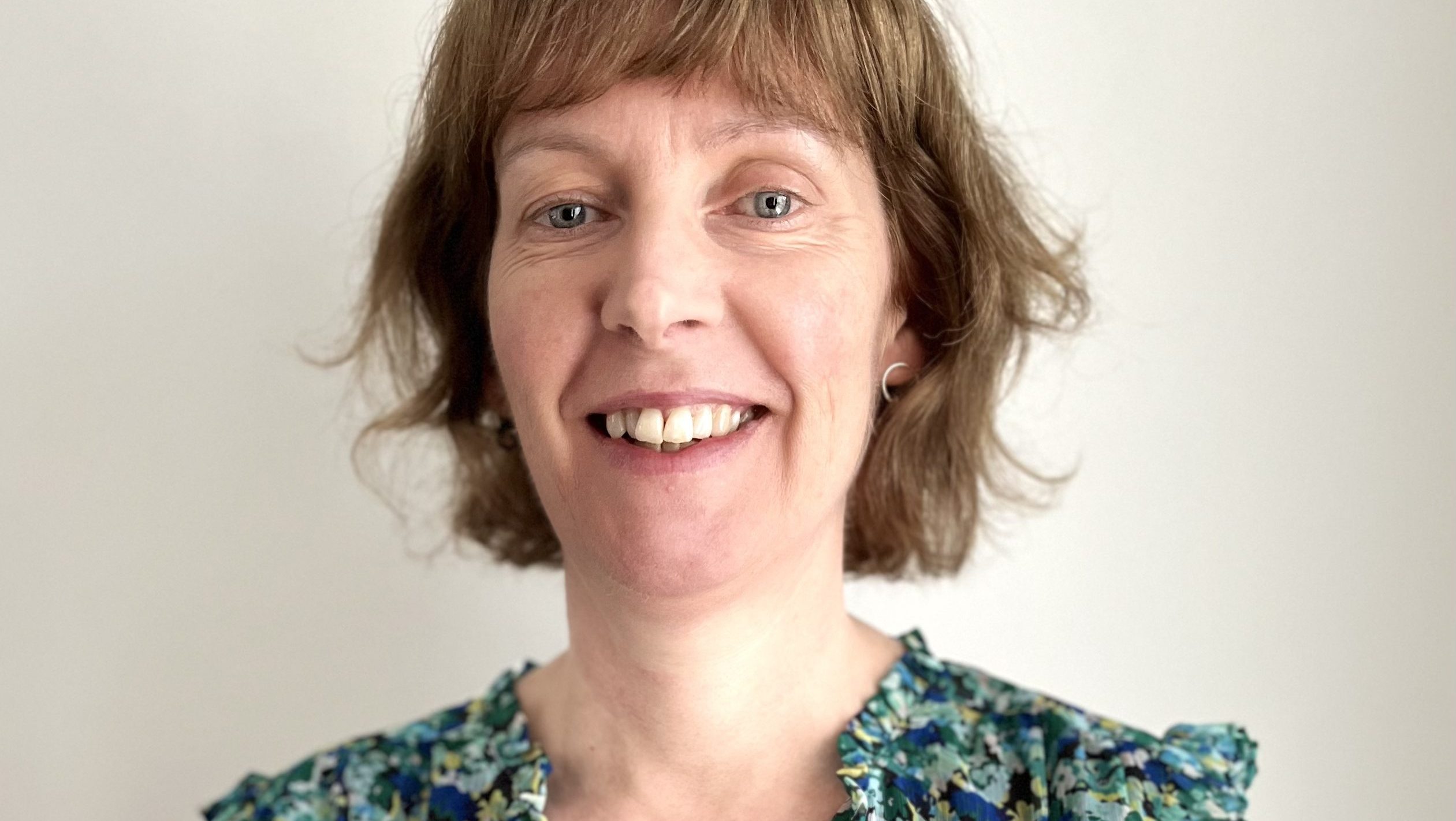Our people
The following people have shared their stories to show how research and the use of evidence is integrated into different roles across the Integrated Care System. People have shared their career journeys, what inspired them to get involved in research and to continue working in this field.
We’d love to include more people’s stories. If you would like to share your story for this page to inspire others to get involved, please email nnicb-nn.research-evidence@nhs.net.

Bryany Cornish, Public Health Manager, Nottingham City Council
I am currently studying a Master of Public Health (Health Research) part-time at University of Nottingham alongside my role as a Public Health Manager at Nottingham City Council. This programme of study is funded through the NIHR insight programme as part of their initiative to get more public health professionals into research and embedding research into public health practice. Public health professionals learn through the MPH but go back to their roles in local authorities with knowledge to be able to deliver research in a more evidence-based way. Prior to starting the Masters, my other research involvement included supporting an MPH student with their dissertation by acting as a second reviewer for their systematic review on women’s experience of gambling harm treatment, which is an area relevant to local work to reduce gambling related harm in Nottingham. It was a good opportunity to pick up the skills needed to conduct a systematic review and see the process through whilst supporting the student with their research.
Additionally, as a public health team 18 months ago we delivered a large-scale gambling related harm campaign across Nottingham which aimed to increase public awareness of gambling related harm and the support services available. We evaluated this campaign using both qualitative and quantitative data collection, and we engaged with people with lived experience within Nottingham City throughout the process.
This was conducted via semi-structed interviews, with the aim of understanding how they were affected by gambling harm, and their experiences of accessing help, support and treatment. The research has really informed the development of the Nottingham City Gambling Related Harm Strategy, which is built upon the needs identified. In addition, our team is currently working with the NIHR Public Health Interventions Research Studies Team (PHIRST) to evaluate our Public Health commissioned gambling harms recovery service ‘Time Out’, delivered by Double Impact in Nottingham.

I am inspired by the opportunity to use the research skills and knowledge, in addition the fundamentals of public health, that we learn on the MPH (Health Research) and apply this to the work I do every day in public health. Having been given protected time to learn and develop the skills needed for research, I have built the confidence to share that knowledge with my team to apply the skills to our varied projects and programmes. Working alongside studying has allowed me to align my degree, the knowledge and skills learnt, towards projects that are important to me. I want to be able to add value to my current role by looking at research opportunities within the development, delivery and evaluation of projects and programmes, to think about the programmes we do deliver and how we can make them better.
I continue to be inspired by making a difference to the health and wellbeing of people in Nottingham. Research allows us to be forward thinking and innovative, making sure we are designing programmes with the service users’ needs in mind. I am grateful to have been able to contribute to the evidence-base in public health by having done my own impactful research and by bringing research and evidence into my practice day-to-day. My aspirations are to being able to focus my master’s dissertation on a topic that is relevant to our work in Nottingham – work that could have tangible real-world impacts on improving the health and wellbeing of citizens. In 5-10 years, I hope to be still using the research skills I have developed and to continue to be learning!
Gemma Squires, Research and Evaluation Manager, Clinical Audit and Research Unit (CARU), East Midlands Ambulance Services NHS Trust
Generic research team email: researchteam@emas.nhs.uk
My current interest and work are within prehospital research, specifically within the ambulance service. It covers a wide breadth of research in the hyper-acute setting. Some research areas we look at include out-of-hospital cardiac arrest, pain management for children, traumatic brain injury and stroke. I previously worked in research delivery and trial management looking specifically at strokes, I am used to the hyper-acute setting and delivering research within time dependant windows and a high intensity environment.
As part of my role, and what I have a keen interest in, is expanding research opportunities to as many patients as possible within the East Midlands region and supporting and engaging and boosting research activity with EMAS. That entails a lot of work with clinical and front-line crews, ensuring our clinical colleagues are aware of and trained in delivering research to the frontline.
In a previous role in Stroke research, during the pandemic we were redeployed to COVID -19 research, and I worked on the Recovery trial, I am named as author on the trial papers within The Lancet. This had impact on lots of people, and I was the first person at NUH to enrol a patient onto the trial.

We have also a recent pre-hospital publication in the New England Journal of Medicine for the PARAMEDIC-3 study which looked at Intravenous and Intraosseous access in out-of-hospital cardiac arrest, with the outcomes looking to contribute towards the 2025 Resuscitation Council UK guidelines. In addition to this, I currently act as part of the Sponsor team for the improving Pain management for children and young people attended by Ambulance (PANDA), which is being led by our Paramedic Research Fellow after he was successful at obtaining an NIHR ACAF award.
My initial academic studies, including my Psychology dissertation, inspired me to get involved in research. Progressing into a research delivery role and working with amazing nurses, doctors and clinical research practitioners, I could see the day-to-day impact of research on patients. Being part of a team that can help generate new knowledge to try and improve patient care and outcomes. My colleagues and our patients inspire me to continue with my research career, in order to try and help future generations with the work we do.
We are continuously working together with a shared goal and ideas to improve the health and wellbeing of both staff and patients. I aspire to continue being a leader within research within 5-10yrs. I want to support and help colleagues flourish within their research careers. Within my leadership role, one of my goals is to work better across our systems. Working alongside ICB and other services, I would like to continue to grow on that trajectory to be part of the system that leads research and works cross- organisationally to deliver research.
Ed Longridge, Research Manager at Chilwell Valley and Meadows Practice/Nottingham and Nottinghamshire Primary Care Research Champion
Working with the practice, I am interested in research delivery in primary care, both commercial and academic. As a research champion, I am interested in promoting research across the whole county. Patients like being involved in and helping with research that is being undertaken, and there are studies that show this. One key research area I have helped with is the RSV vaccine for newborn babies which has been added to their vaccination schedule. We are not academics; we are more involved in delivering research to eligible patients. If the virtual research hub is for patients, we could use it to help them find studies they can join. The practice has always done research, and I wanted to be more involved with this. Over the years, we have steadily increased the amount of research for patients and are currently doing up to forty or so studies a year. I love helping with research. Although I am not a clinician, I like indirectly helping patients to provide them with new therapies they might not be able to access. As a practice, we hope to increase commercial research as much as possible and expand research opportunities. As a research champion, I hope to try to get as many practices as possible to sign up to take part in research.
Helen Janiszewski, Clinical Lead for Nursing and Midwifery Research and Innovation, Nottingham University Hospital NHS Trust
My research interests focus on inflammatory bowel disease during pregnancy, and this is the area I am currently researching, having previously completed a BSc Midwifery, MSc Midwifery, Master’s in Clinical Research and a PhD.
I had always been curious about practice and evidence, about why we do things, and what can we do differently. I really became interested in research when I recognised there was a lack of guidance for midwifery care for pregnant women living with IBD and the disparity in guidance about IBD and pregnancy, compared with other long-term conditions. Having recognised this disparity, I began to question what impact did this have on women’s experiences of maternity care. That led me to explore what are the experience for women.
During my studies, I completed a systematic review and a mixed methods PhD study about the experiences of pregnant women living with IBD which generated new knowledge and evidence. My research identified women having differing experience of care- and how the lack of standardised practice guidance influenced this. I undertook a mixed methods research study which included exploring with women what they wanted to see as part of their care, what influenced their experiences and how to improve their care. This was published in midwifery and gastroenterology journals and presented at national and international conferences. I have also developed care recommendations for midwifery care when caring for women with IBD which have been endorsed by Royal College of Nursing and British Society of gastroenterology. These will help to standardise pregnancy care for women using the most current evidence. As a midwife I recognised the disparity in guidance of care for pregnant women living with IBD and an awareness that midwives do not receive any training on IBD. This led me to develop an education package about IBD and pregnancy for midwives hosted by Royal College of Midwifery to improve and standardise care.
My initial curiosity, along with the research training, enables me to have the research skillset to start to answer questions in clinical practice. In order to deliver high quality evidence-based care, we need to have research that generates evidence. I am committed to ensuring care is evidence based- and ensuing that care is the highest quality it can be. I aspire to be a recognised midwifery research leader, driving research forward and being able to support and mentor aspiring clinical academic midwives and nurses.
Rachel Illingworth, Head of Research and Evidence, NHS Nottingham and Nottinghamshire Integrated Care Board
I started my career in NHS general management but have worked in research for the past 25 years. After studying for a Master’s degree my initial role was as Research Associate in Primary Care at the University of Nottingham working on childhood injury prevention at home research. Then I moved to NHS R&D Facilitator and Manager roles in community care and then primary care. More recently I have worked in strategic research roles in NHS commissioning organisations.
My current role as Head of Research and Evidence in the ICB includes:

- Research strategic partnerships: Working with partners across the Integrated Care System (ICS) including University partners and the NIHR to develop a strategic system wide collaborative approach to population health and care research.
- Implementing the Nottingham and Nottinghamshire ICS Research Strategy. Collaborative and integrated working with partners to develop, deliver and implement the outcomes of research.
- Supporting Primary Care to increase research capacity, capability and activity to enable GP practices and the wider primary care team to engage in research and increase research opportunities for patients and the workforce. This is in collaboration with the primary care research champions and others across the system.
- Diversity and inclusion: An important focus on research engagement with communities – working to ensure communities are able to shape, be involved in and participate in health and care research that matters to them.
- Using research outcomes in practice- supporting more systematic utilisation of evidence from research to inform decision making and transformation across the ICB and ICS.
I moved into working in health research as it enabled me to use what I’d learnt in my management roles and Master’s degree and put my skills and experience towards something that has an impact for patients in a different way. I was interested in public health and my Master’s degree gave me an interest in research methods.
I’m inspired by the people that I work with and a collaborative approach to health and care research and the shared aims of what we are trying to do which is ultimately improving health outcomes for the population. Research can drive improvements in outcomes, tackle health inequalities and support the ICS principles of prevention, equity and integration. I have a drive to do work which has the most impact to improve population health and care and have impact for the workforce and system.
My aspirations are to continue to implement our ICS research strategy to achieve the vision and to continue to collaborate and work as a network of partners so we can see a real change and be able look back on the impact that was made.